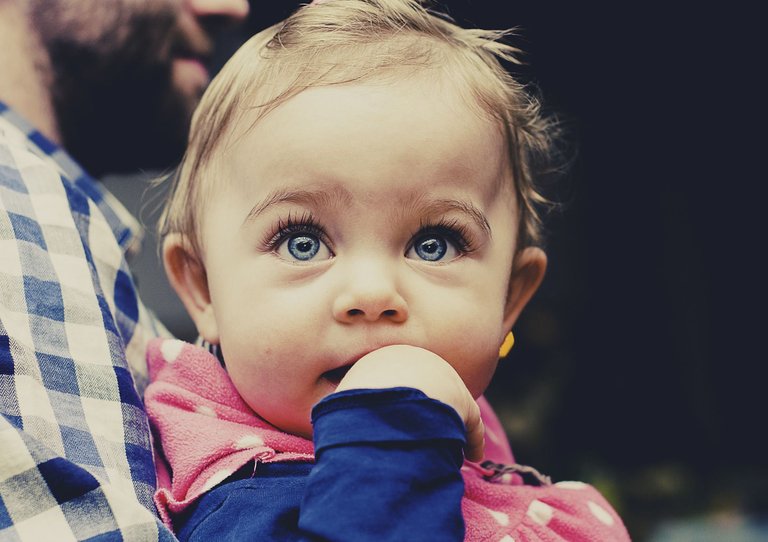
Image by tookapic from Pixabay
English
As people we are born, we develop and we understand a whole series of parameters that guide and, if you like, ensure our survival. We learn (or should learn) at least the basic rules that ensure a healthy coexistence. However, this entire learning process turns us into prejudiced individuals so that any action we take will be subject to a prior evaluation unfounded by such prejudices.
But ... What about babies?
It is common to hear it said that as children we want to eat the world, and that is a reality because from our first years of life we interact with the environment with the desire to know more and more what surrounds us. And it is interesting to see how the baby interacts with other individuals such as parents, siblings and other family members, but it is even more interesting to see him interact with unknown people. Why? Well, because their need to understand what is happening around them involves everything and everyone.
Español
Como personas nacemos, nos desarrollamos y comprendemos toda una serie de parámetros que orientan y, si se quiere, aseguran nuestra supervivencia. Aprendemos (o deberíamos aprender) como mínimo las normas básicas que aseguren una sana convivencia. Sin embargo, todo este proceso de aprendizaje nos convierte en individuos prejuiciosos de manera que cualquier acción que tomemos estará sometida a una valoración previa infundada por tales prejuicios.
Pero… ¿Que ocurre con los bebes?
Es común oír decir que como niños queremos comernos el mundo, y esa es toda una realidad porque desde nuestros primeros años de vida interactuamos con el entorno con el afán de conocer más y más lo que nos rodea. Y es interesante ver como el bebé se relaciona con otros individuos como los padres, hermanos y otros familiares, pero más interesante aún es verlo interactuar con personas desconocidas ¿Por qué? Pues, porque su necesidad de entender lo que ocurre a su alrededor implica a todo y a todos.
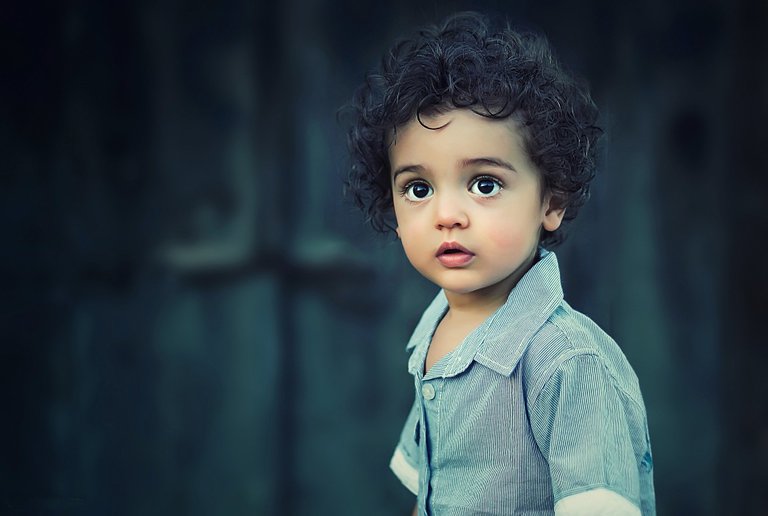
Image by Bessi from Pixabay
Thus we see how the suspicious mother with her child in her arms moves down the street, perhaps wishing to get home quickly because it seems to her that the area is dangerous and any of those strangers who frequent it could represent a threat, but the baby, devoid of such prejudices has been observing the lady who walks behind and smiles at her when she makes a morisqueta that seems comical, and the child does not need to determine if that woman is bad or not, he is only interested in knowing that she is part of the environment, that it is a person like his mother and as such he sees the need to interact with her.
Así vemos como la madre recelosa con su hijo en brazos avanza por la calle deseando quizás llegar rápido a su casa porque le parece que la zona es peligrosa y cualquiera de esos desconocidos que la frecuentan podría representar una amenaza, pero el bebé, desprovisto de tales prejuicios viene observando a la dama que camina detrás y le sonríe cuando le hace alguna morisqueta que le parece cómica, y es que el niño no requiere determinar si esa mujer es mala o no, sólo le interesa saber que es parte del entorno, que es una persona como su madre y como tal se ve en la necesidad de interactuar con ella.
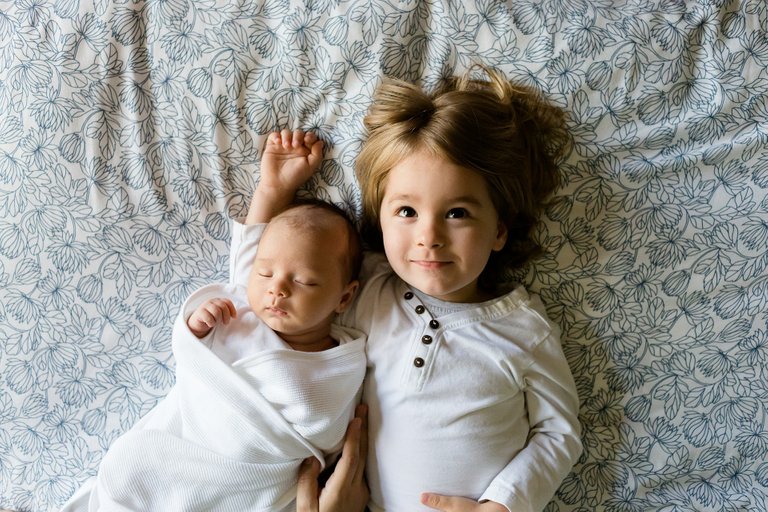
Image by 460273 from Pixabay
More than once we have passed by a sidewalk and seen in the courtyard of a house the whole family gathered and some of their small children leaning out of the gate and greet us with a decided "Hello" or ask us a question that maybe we do not take a long time to answer before the inquisitive look of their parents, and, why not, to the man who bumps into a beautiful lady with her little son by the hand and is prejudiced with the fact of maintaining the highly decent lady bearing, swiftly turns the look when the man looks at her but with the different reaction of his son who does not do the same, he remains observing the man carefully, recognizing him as another individual, although an adult, like him, like his father, perhaps like his brother and understanding that it is part of your environment and that, as such, it deserves your attention, your acceptance and perhaps your friendship.
Más de una vez habremos pasado por una acera y visto en el patio de una casa a toda la familia reunida y a alguno de sus pequeños hijos asomados en la verja y saludarnos con un decidido “Hola” o hacernos alguna pregunta que tal vez no nos tomemos mucho tiempo de responder ante la inquisitiva mirada de sus padres, y, porque no, al hombre que se tropieza con alguna bella dama con su pequeño hijo de la mano y esta prejuiciada con el hecho de mantener el porte de dama altamente decente, gira rauda la mirada cuando el hombre la mira pero con la reacción distinta de que su hijo no hace lo mismo, este se queda observando al hombre detenidamente, reconociéndole como otro individuo, aunque adulto, como él, como su padre, quizás como su hermano y entendiendo que forma parte de su entorno y que como tal merece su atención, su aceptación y quizás su amistad.
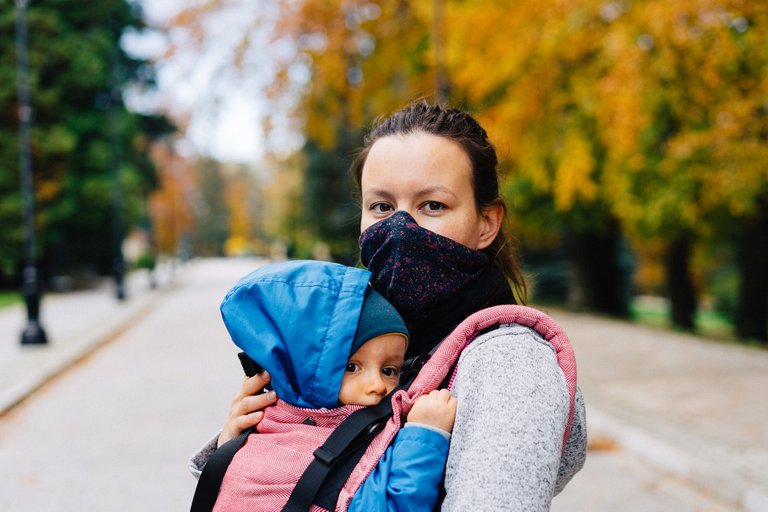
Image by marcinjozwiak from Pixabay
It should be understood however many of the prejudices of adults have a logical reason and is to stay safe, this is a priority in a world in which insecurity is everywhere, that is why children are taught with principles like the do not talk or do not trust strangers.
But the wonderful personality of children is not only limited to having behaviors contrary to our prejudices. One of the psychological characteristics of man is to look at the person with whom, for example, he is spoken.
But what do we see about that person? the most normal thing is that we focus our attention on her face, but, for some reason, we avoid looking at her directly in the eyes, our gaze is usually directed to a point between the nose and the mouth, eventually rising to the eyes. But in children the reality is quite the opposite, their gaze is focused directly on our eyes without the slightest hesitation, so that, if the eyes are really the reflection of the soul, they perceive such a reflection and they do it with an innate naturalness, something that for some reason we have lost as adults.
Debe entenderse no obstante que muchos de los prejuicios de adultos tienen una razón lógica y es el de mantenernos seguros, una prioridad en un mundo en el que la inseguridad está a la orden del día, por esto se adoctrina a los hijos con principios como el de no hablar o confiar en extraños. Pero la maravillosa personalidad de los niños no sólo se limita a tener conductas contrarias a nuestros prejuicios. Uno de los caracteres psicológicos del hombre es mirar a la persona con la que, por ejemplo, se habla. Pero ¿que miramos de esa persona? lo más normal es que enfoquemos nuestra atención hacia su rostro, pero, por alguna razón, rehuimos mirarla directamente a los ojos, nuestra mirada se dirige por lo general a un punto entre la nariz y la boca subiendo muy eventualmente a los ojos. Pero en los niños la realidad es todo lo contrario, su mirada se centra directamente en nuestros ojos sin el más mínimo titubeo, de manera que, si los ojos son realmente el reflejo del alma, ellos perciben tal reflejo y lo hacen con una naturalidad innata, algo que por alguna razón hemos perdido de adultos. .
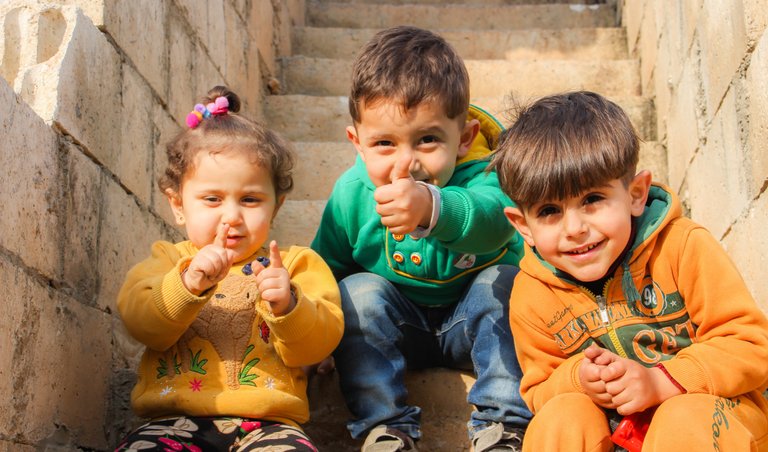
Foto de samer daboul en Pexels
It is quite unlikely to meet an adult who looks directly in the eye and if so we will probably feel some resistance to keep his gaze. Perhaps it is due to the fact that we have learned to interact less deeply with our peers, especially regarding emotions that may arise from issues that we do not understand, such as those derived from observing our interlocutors in the eyes. And it is that all the appraisals we make of the behaviors of our fellow human beings are based on the observation of other characteristic features, in that way we come to say "I know when he is lying to me", "I know when she is worried", but without ever getting to grasp it from the "reflection of the soul".
Es bastante improbable encontrarnos con un adulto que mire directamente a los ojos y de ser así probablemente sintamos cierta resistencia a mantener su mirada. Tal vez obedezca a que hemos aprendido a interactuar menos profundamente con nuestros congéneres, sobre todo en lo atinente a emociones que puedan sobrevenir de temas que no comprendemos como las derivadas de observar a nuestros interlocutores a los ojos. Y es que todas las apreciaciones que hacemos de las conductas de nuestros congéneres se basan en la observación de otros rasgos característicos, de esa manera llegamos a decir “yo sé cuándo él me está mintiendo”, “yo sé cuándo ella está preocupada”, pero sin jamás llegar a captarlo desde el “reflejo del alma”

Foto de Christina Morillo en Pexels
Scholars have not given an acceptable reason why adults do not look their fellow human beings in the eye. But the truth is that children do look directly in the eye. In any case, children live to eat the world and we will probably be very aware of it the next time we bump into a little one, the way they look at us and we may wonder if this way children can determine who we are in reality.
Los estudiosos no han dado una razón aceptable por la que de adultos no miran a sus congéneres a los ojos, pero lo cierto es que los niños si lo hacen. De cualquier forma, los niños viven para comerse al mundo y probablemente estemos muy pendientes de ello la próxima vez que nos tropecemos con un pequeño, de la forma que tienen de mirarnos y tal vez nos preguntemos si con ello logran determinar quiénes somos en realidad.
Congratulations @exilon! You have completed the following achievement on the Hive blockchain and have been rewarded with new badge(s) :
Your next target is to reach 2250 upvotes.
You can view your badges on your board and compare yourself to others in the Ranking
If you no longer want to receive notifications, reply to this comment with the word
STOP